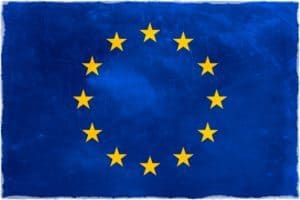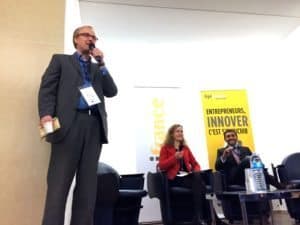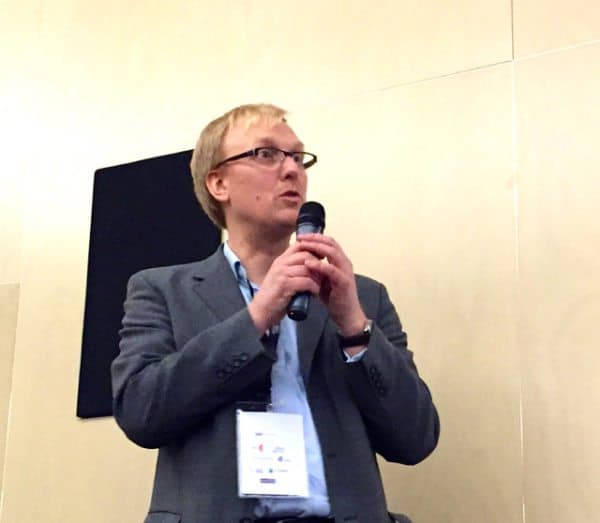The European Crowdfunding Network (ECN) is the leading independent advocate for Fintech innovation, including crowdfunding, in Europe. The ECN has earned a reputation of engaging with a broad group of industry participants, thought leaders and public officials to help guide the evolution of new forms of finance. Oliver Gajda has been the longtime Executive Director for ECN. Gajda is incredibly well connected across Europe and is knowledgable on all forms of Fintech.
 In March of this year, the European Commission (EC) published their plan to boost Fintech innovation across Europe – as part of the Capital Markets Union (CMU). This plan also included proposed rules for crowdfunding to operate in a cross border fashion. Currently, each country has a set of rules that do not easily translate into cross border investment opportunities. While the ECN issued supportive comment on the EC Fintech initiative – they cautioned on some aspects of the proposal. One item that continues to resonate with the platforms is for issuers to be able to raise up to €8 million (or more) without filing for a prospectus. This would better match the needs of early stage companies and help platforms to scale.
In March of this year, the European Commission (EC) published their plan to boost Fintech innovation across Europe – as part of the Capital Markets Union (CMU). This plan also included proposed rules for crowdfunding to operate in a cross border fashion. Currently, each country has a set of rules that do not easily translate into cross border investment opportunities. While the ECN issued supportive comment on the EC Fintech initiative – they cautioned on some aspects of the proposal. One item that continues to resonate with the platforms is for issuers to be able to raise up to €8 million (or more) without filing for a prospectus. This would better match the needs of early stage companies and help platforms to scale.
As Fintech has received more attention from European policymakers, especially in light of Brexit, CI decided to reach out Gajda for an update Fintech progress in the EU. Our conversation is below.
The European Commission released their Fintech Plan as part of the CMU initiative. How did Fintech end up leading the CMU?
Oliver Gajda: Fintech does not necessary lead the CMU. There have been many other activities that have already been worked on and implemented as part of the CMU. However, as the EC leadership will retire in 2019 the Fintech action plan is now being pushed as to achieve significant progress and to ensure the continued support and focus on this going forward also within the new EC as of 2019/20.
CMU and thus Fintech is foundational to the European Union, isn’t it?
Oliver Gajda: Yes. There is a clear understanding that further integration of capital markets within the European Union is needed, the CMU is addressing this (but there is also a Banking Union, a Digital Single Market and other EC lead initiatives that work together in restructuring and improving the EU framework overall, so the CMU is one part of many and should not be understood as the one and only foundation of the reforms of the EU).
There is also no doubt that innovative financial technology will have an significant impact on financial services, banking and capital markets. The CMU specifically addresses aspects of pan European capital formation and thus also includes relevant Fintech aspects.
As a first step, crowdfunding and a pan-European regulatory approach is at the top of the list. Has the Commission made any progress? Are the member countries in agreement?
 Oliver Gajda: The EC has monitored the CF market closely since around 2012. They have collected data, both quantitative and qualitative, executed studies and research but also engaged with stakeholders overall. They also monitored Member State regulation and its impact on the markets.
Oliver Gajda: The EC has monitored the CF market closely since around 2012. They have collected data, both quantitative and qualitative, executed studies and research but also engaged with stakeholders overall. They also monitored Member State regulation and its impact on the markets.
During this time ECN has contributed a lot in providing market access and open access to data and operational insights, but the EC has, of course, also engaged a wide range of other stakeholders, including Member State authorities. Their proposal in the ECSP is the result of this, in which they push for some aspects important for the EC, but leave others for the Member States and the European Parliament to discuss.
To date, the EC proposal has not been introduced into the European Council, but this is expected this summer and the latest with the Austrian Presidency as of July.
So far, individual Member States have made statements but there is no visible consensus (and at this stage there likely should not be any). The European Parliament has decided which political fractions will lead the work on the proposal (the conservative ECR group will lead the work on the proposal itself, while the liberal ALDE group will lead the work on the necessary adjustments within MiFID), but the persons in charge of these have not yet been named. We should expect relevant discussions in the second half of 2018, which is also why we placed our annual ECN Crowdfunding Convention on the 18th of October in Brussels.
What about the funding cap? Will the Commission peg this at EUR 5 million or EUR 10 million?
Oliver Gajda: The EC has made the cap at EUR 1 million, but has indicated that they are open to move this. This is an issue that now has to be taken up by the Council and the European Parliament.
We know from some Member State’s conduct authorities, that solutions are already been discussed in order to raise the cap. This will be a technicality and can be easily done, if a consensus can be reached on the amount.
The Commission wants the EU to become a Fintech Hub. Is this achievable?
Oliver Gajda: Of course, and we could argue the EU is already a Fintech Hub.
As long as we keep to the generic and indirect article, this works. If the EU will be THE (leading or one and only) Fintech hub, is a very different question. But for now we see very strong developments and clusters driving innovation in Fintech in a number of countries.
The EC is currently supporting the overall development and is concerned that relevant exchange of knowledge happens across borders and that markets develop also across borders. Here the experience of Crowdfunding has helped the EC to be more proactive early on and to set up relevant support initiatives.
What about blockchain development? What about France’s interest in becoming an ICO (initial coin offering) friendly jurisdiction?
 Oliver Gajda: This is quite interesting, of course. We shall see how that plays out and how other jurisdictions will react to ICOs. There is clearly a lot of positives to be said about the market, and a lot of negatives too. That is normal.
Oliver Gajda: This is quite interesting, of course. We shall see how that plays out and how other jurisdictions will react to ICOs. There is clearly a lot of positives to be said about the market, and a lot of negatives too. That is normal.
The EC has outlined blockchain and DLT within its Fintech Action plan and is, one could say, quite aggressively also pushing the development and uptake of relevant technologies in the EU. But given the status of blockchain and ICO in particular, there isn’t sufficient market evidence yet to allow for a conclusive recommendation on ICO regulation on EU level.
The EC is monitoring developments within the EU and beyond, also encouraging competition between different jurisdictions, in order to gather sufficient insights into the risks, benefits and operational processes of the market before regulation will be proposed.
Having said that, there is of course not one voice and one opinion, and therefore there are also those that already now request that ICO should be included in existing capital market regulation or, potentially, even within the ECSP proposal. For now, we do not expect any of the latter to be discussed in earnest, and so we should anticipate a few years of market monitoring before European rules will be implemented (of course, that is being said with the current EC in mind, we do not know yet what the appointment of the new EC leadership in 2019 will bring).
Recently the ECN joined SolarCoin (a cryptocurrency) as an advisor. Will you be doing more of this?
Oliver Gajda: We have been in touch with SolarCoin already since a number of years through our Board Member Alex Raguet of Lumo, France. Lumo has been testing SolarCoin as an incentive within Crowdfunding for renewable energy. SolarCoin lends itself to ECN because of its open source and non-commercial and collaborative nature. Given some of other planned activities in the area of blockchain and DLT, we have now decided to make our support a little more hands on and public. With blockchain and DLT in general, we believe in the potential impact it will have on crowdfunding and other financial services and support mechanisms for small and medium sized companies and projects.
We are currently setting up a Working Group that will specifically look at the technical impact of DLT on the operational aspects of crowdfunding in order to better exploit opportunities going forward. We will also continue to look at ICOs, for which we have already added the ICO Charter as Annex to our Code of Conduct, but believe that the benefits of DLT for crowdfunding are for now not just linked to cryptocurrency.


